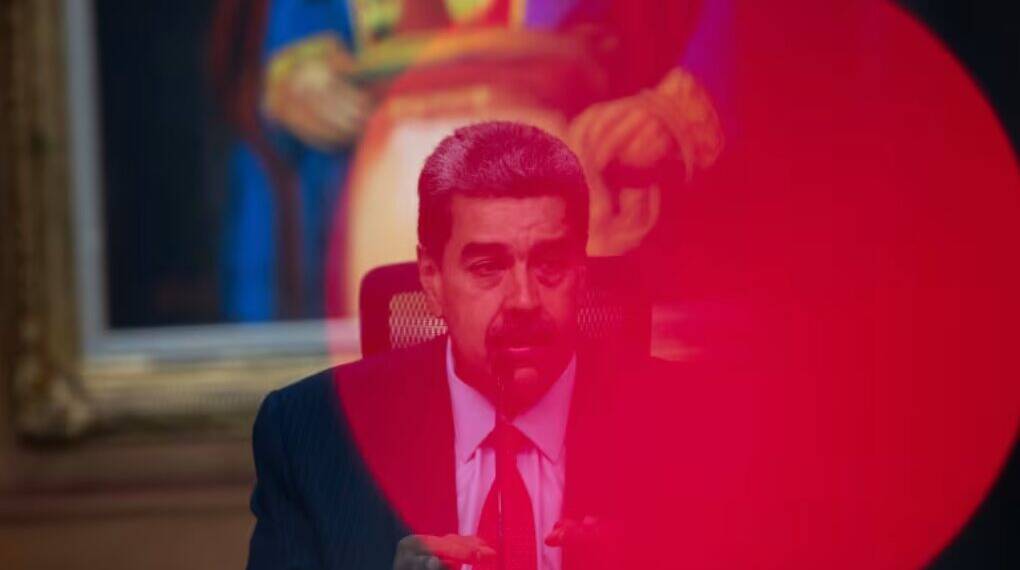In a stunning revelation of U.S. clandestine operations, an Associated Press (AP) investigation has uncovered a 16-month CIA-orchestrated scheme to recruit Venezuelan President Nicolás Maduro’s personal pilot, Gen. Bitner Villegas, in a bid to divert the leader’s presidential jet and enable his capture by American authorities.
The operation, which spanned secret meetings, encrypted communications, and even the seizure of aircraft, ultimately collapsed when Villegas rejected the overtures and reaffirmed his unwavering loyalty to Maduro.
The key U.S. figure at the center of the plot was Edwin Lopez, a retired Puerto Rican ex-Army Ranger and former Homeland Security agent, whose obsession with the mission persisted well into 2025, long after his official retirement.
The Recruitment Target: Maduro’s Trusted Pilot
Gen. Bitner Villegas, a high-ranking Venezuelan military officer, has served as Maduro’s personal pilot for years, granting him intimate access to the president’s travel schedule and the Il-96-300 presidential aircraft, often dubbed “Air Force One” of Venezuela.
Sources familiar with the AP probe describe Villegas as a loyalist embedded deep within Maduro’s inner circle, making him an ideal—but high-risk—target for defection.
The plan hinged on convincing Villegas to reroute Maduro’s jet mid-flight to a U.S.-friendly location, where American forces could intercept and detain the Venezuelan leader. Such a diversion would have echoed historical U.S. interventions in Latin America, including the 1989 invasion of Panama to capture Manuel Noriega.
Edwin Lopez: The Relentless Operative
Edwin Lopez, the driving force behind the recruitment effort, brought a decorated military background to the table. As a former Army Ranger from Puerto Rico, Lopez transitioned into Homeland Security roles before retiring. Yet, retirement did little to curb his zeal. The AP reports that Lopez initiated contact with Villegas as early as 2023, using a network of intermediaries to establish trust.
Over the ensuing 16 months, the two engaged in a cat-and-mouse game involving:
Secret meetings in third-country locations to avoid detection by Venezuelan intelligence.
Encrypted chats on secure platforms, where Lopez allegedly dangled incentives like asylum, financial rewards, and protection for Villegas’s family.
Seized aircraft as leverage—U.S. authorities had previously grounded Venezuelan planes on drug-trafficking pretexts, which Lopez referenced to pressure the pilot.
Lopez’s persistence bordered on fixation. Even after formal retirement, he continued outreach into 2025, bypassing official channels and operating in a gray zone that raised questions about rogue elements within U.S. intelligence.
How the Plot Unraveled
Despite the elaborate setup, Villegas never wavered. The AP investigation details how the general viewed the approaches with suspicion from the start, eventually reporting them to Venezuelan counterintelligence. In a decisive blow to the operation, Villegas went public in early 2025, appearing on state television to denounce the U.S. scheme and pledge eternal allegiance to Maduro.
“I am a soldier of the Bolivarian Revolution,” Villegas declared on VTV, Venezuela’s state broadcaster. “No amount of Yankee gold or threats will buy my soul.”
His refusal not only foiled the kidnapping plot but also embarrassed U.S. agencies, highlighting the limits of covert recruitment in an era of heightened surveillance and ideological entrenchment in Venezuela’s military.
Broader Implications for U.S.-Venezuela Relations
The exposed operation comes amid escalating tensions between Washington and Caracas. The U.S. has long accused Maduro of authoritarianism, drug trafficking, and human rights abuses, imposing sanctions and recognizing opposition leader Juan Guaidó as interim president in 2019 (a policy later softened under the Biden administration). Maduro, in turn, labels U.S. actions as imperialistic aggression.
This incident adds fuel to Venezuela’s narrative of CIA meddling, reminiscent of past plots like the 2002 coup attempt against Hugo Chávez. It may complicate diplomatic thawing efforts and bolster Maduro’s domestic support by portraying him as a target of foreign assassination or rendition schemes.
Critics in the U.S. argue such operations risk international law violations, including sovereignty breaches under the UN Charter. Defenders, speaking anonymously to AP, claim they align with efforts to counter narco-terrorism, given Maduro’s indictment in 2020 on U.S. drug charges with a $15 million bounty.
CIA and Homeland Security Response
Neither the CIA nor the Department of Homeland Security has officially commented on the AP findings. Spokespersons declined to confirm or deny the operation, citing standard policy on intelligence matters. Lopez, reached by AP investigators, refused interview requests and has since gone silent on public platforms.
As the story unfolds, it underscores the shadowy persistence of Cold War-era tactics in modern geopolitics. For Maduro, surviving yet another alleged U.S. plot reinforces his grip on power. For Villegas, it cements his status as a regime hero.
The full AP investigation, drawing on leaked documents, intercepted messages, and interviews with over a dozen sources, paints a vivid picture of espionage thwarted by loyalty. In a world of shifting alliances, this failed gambit serves as a cautionary tale: not every insider can be bought.








